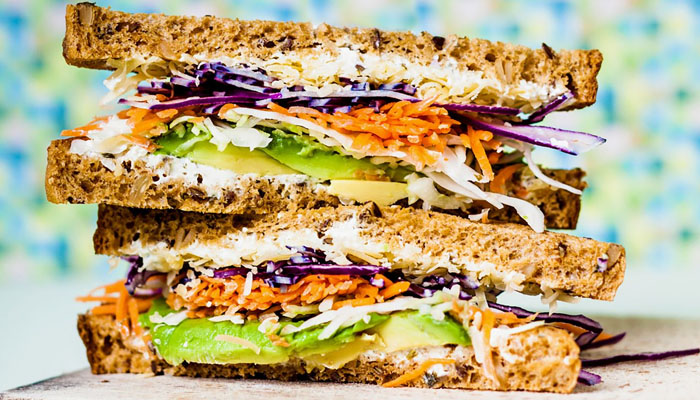How to make a healthy sandwich?
47% American adults consume sandwich but not necessarily healthy ones
There are a few things you can do when creating a sandwich to maximise health advantages, as per the information from the United States Department of Agriculture (USDA).
The category of "sandwiches," a lunchtime favourite, offers an almost infinite variety of options and taste profiles. Of American adults, 47% consume a sandwich on any given day, according to Health.
Now, a new version of the MyPlate food category guidelines specifically for sandwiches has been released by the USDA and MyPlate National Strategic Partners to assist Americans in creating healthier lunches (or breakfasts and dinners).
Starting with grains, making half of our grains whole is a healthy choice, according to the original USDA MyPlate. Whole grains, whether in the shape of bagels, buns, tortillas, pitas, or whole wheat bread, are perfect for sandwiches.
Add as much food as you can. Nutrient-dense vegetables such as leafy greens, bell peppers, zucchini, and onions are a simple way to load up a sandwich. Even fruits like sliced apples, grapes, or raisins can appear with the correct flavour combination.
Select a low-fat protein. Protein-rich meals that are lower in fat and sodium, such as mashed beans, canned tuna, or leftover chicken, are also excellent choices.
Change the spread. Sometimes you can stick with the traditional mayo, but you should also think about adding other options that are lower in sodium, saturated fat, and added sugars. These may be nut butter, hummus, Greek yoghurt, or roasted garlic.
Reduce expenses without sacrificing fun or flavour. You may make a nice sandwich and save money by starting with leftovers or selecting produce that is in season.
-
All you need to know guide to rosacea
-
Prevent cancer with these simple lifestyle changes
-
Experts reveal keto diet as key to treating depression
-
Skipping breakfast? Here are some reasons why you shouldn't
-
Sciences reveals shocking body response against heart attack
-
Anti-inflammatory teas to keep your gut balanced
-
Emma Stone reveals she is ‘too afraid’ of her ‘own mental health’
-
5 simple rules to follow for smooth, healthy hair












